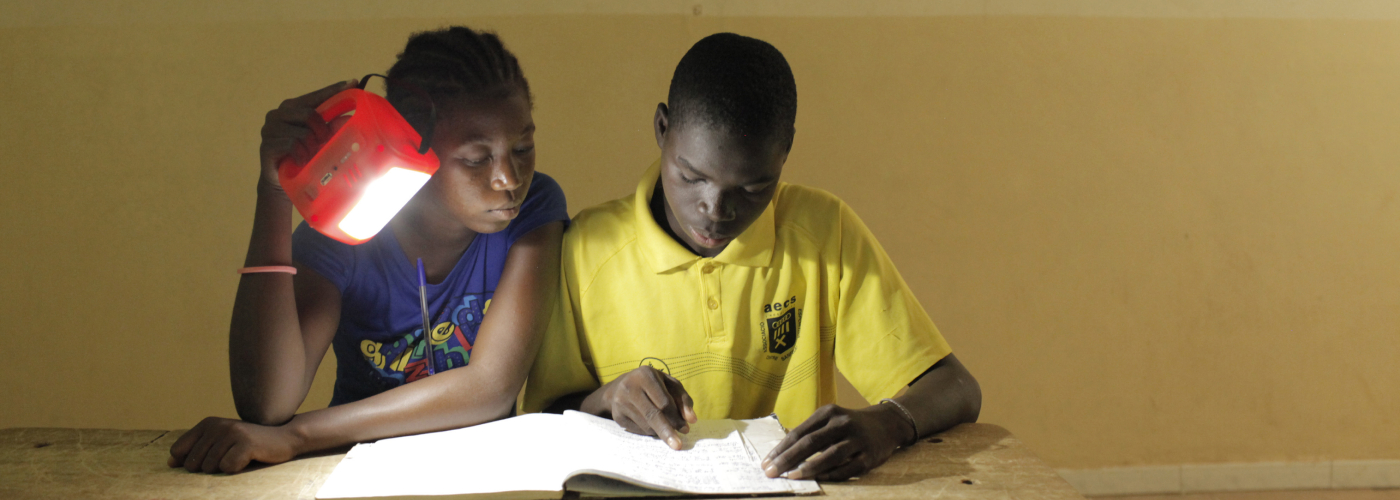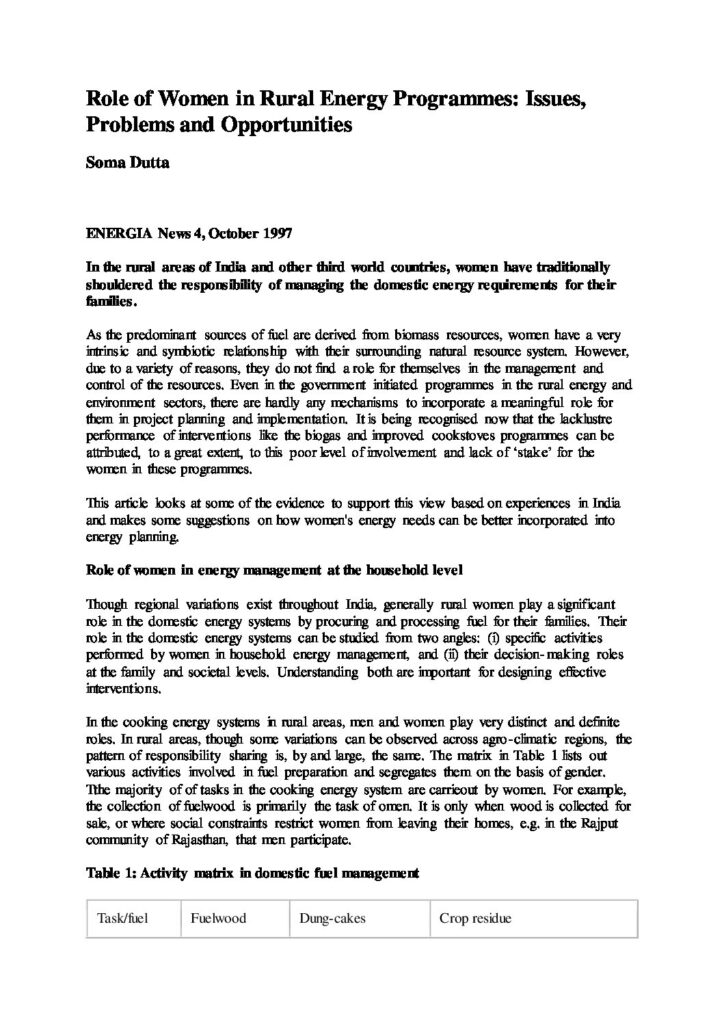In the rural areas of India and other third world countries, women have traditionally shouldered the responsibility of managing the domestic energy requirements for their families.
As the predominant sources of fuel are derived from biomass resources, women have a very intrinsic and symbiotic relationship with their surrounding natural resource system. However, due to a variety of reasons, they do not find a role for themselves in the management and
control of the resources. Even in the government initiated programmes in the rural energy and environment sectors, there are hardly any mechanisms to incorporate a meaningful role for them in project planning and implementation. It is being recognised now that the lacklustre
performance of interventions like the biogas and improved cookstoves programmes can be attributed, to a great extent, to this poor level of involvement and lack of ‘stake’ for the women in these programmes.
This article looks at some of the evidence to support this view based on experiences in India and makes some suggestions on how women’s energy needs can be better incorporated into energy planning.








